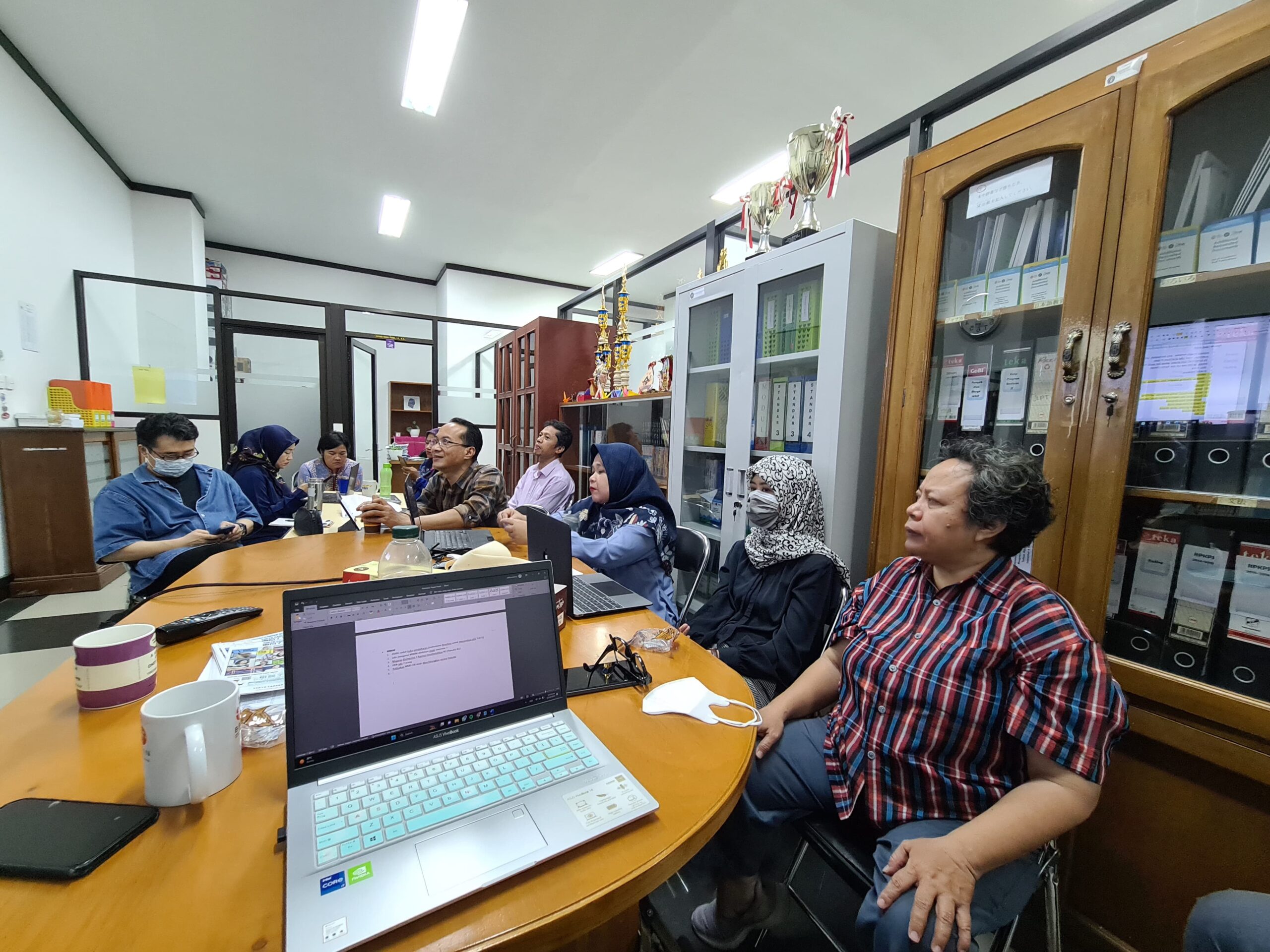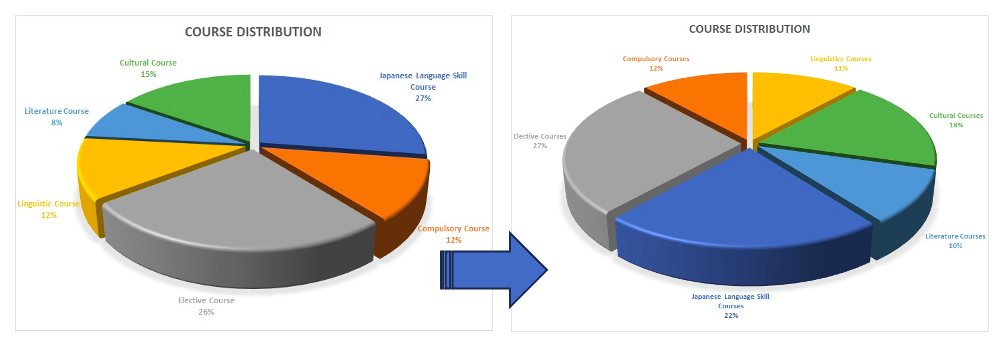The 2020 Curriculum Will Be Revised and the Study Programme’s Name and Distribution of Courses Will Be Adjusted
On August 7-10, 2023, the Study Programme of Japanese Literature held a curriculum meeting. The agenda for this meeting is to conduct an annual curriculum review about CPL (also known as ILO or Intended Learning Outcome) and CPMK (also known as CLO or Course Learning Outcome), teaching methods, and preparation for curriculum revision in 2024. This meeting also includes a discussion on AQAS recommendations regarding changing the name of the study programme, adding some literature, cultural, linguistic, and elective courses into the program, as well as changes or additions to the content of several courses based on the result of curriculum benchmarking with other campuses.

The review on ILO and CLO was mainly conducted on skill courses to respond to AQAS recommendations, which aimed to increase the language proficiency target of students, from JLPT N3 equivalence to JLPT N2 equivalence. To address this, besides adjusting the CLO targets for each Japanese language skill course, other efforts were also made, such as incorporating JLPT practice questions into several meetings of each language skill course, conducting practicum sessions, and facilitating N2-level study groups for students. The practicum sessions, which are currently only available in Bunpo 1, Bunpo 2, Moji Goi 1, and Moji Goi 2 courses, will be added to the new curriculum for Chokai-Kaiwa and Dokkai courses. Each one-credit practicum session will also include enrichment materials for JLPT test questions.
The teaching methods have also been adjusted in this year’s annual curriculum revision. Many courses, especially content courses, have changed their methods to collaborative classes. Project-based or case-based learning is applied to all content courses, and project outcomes will be archived on the study programme’s website or through other social media platforms.
After a lengthy discussion regarding the change of the study programme’s name, it was decided that the name would be altered, which would also affect the distribution of courses. Initially, AQAS recommended changing the program name to Japanese Language and Cultural Studies, but due to regulations on university names set by the Ministry of Education, Culture, Research, and Technology, the study programme name will be changed according to the nomenclature to Japanese Language and Culture (Bahasa dan Kebudayaan Jepang). This change has been proposed by the Faculty to the University, and the program is currently awaiting a decision from the Ministry of Education, Culture, Research, and Technology regarding this name change.

With the change in the study programme name, the distribution of program courses also undergoes adjustment. New courses will be added in the upcoming academic year for the curriculum in 2024. Based on the 2020 curriculum, Compulsory courses accounted for 12%, Linguistics courses 12%, Cultural courses 15%, Literature courses 8%, Japanese Language Skill courses 27%, and Elective courses 26%. In the new curriculum, the distribution will change, with Compulsory courses at 12%, Linguistics courses at 11%, Cultural courses at 18%, Literature courses at 10%, Japanese Language Skill courses at 22%, and Elective courses at 27%. To align with the program name, the percentage of each concentration of courses in the new curriculum will be more evenly distributed.
In addition to adjusting the distribution of courses, the number of credits (Sistem Kredit Semester) for some courses is also being adjusted, especially for practical courses. Other than that, based on the benchmarking results of the curriculum, the names of some courses will be changed, and new content will be added. According to the benchmarking results with the University of Queensland, the name of the Penerjemahan II course will be changed to Indonesia/Japanese Interpreting and Translation, with the addition of interpreting content. Lastly, from the benchmarking results with Kochi University, the new curriculum will include an elective course, Evaluasi Pengajaran Bahasa Jepang, to accommodate students interested in Japanese language teaching courses. With these changes, the Study Programme of Japanese Literature is committed to providing the best quality education to its students.
(anna)